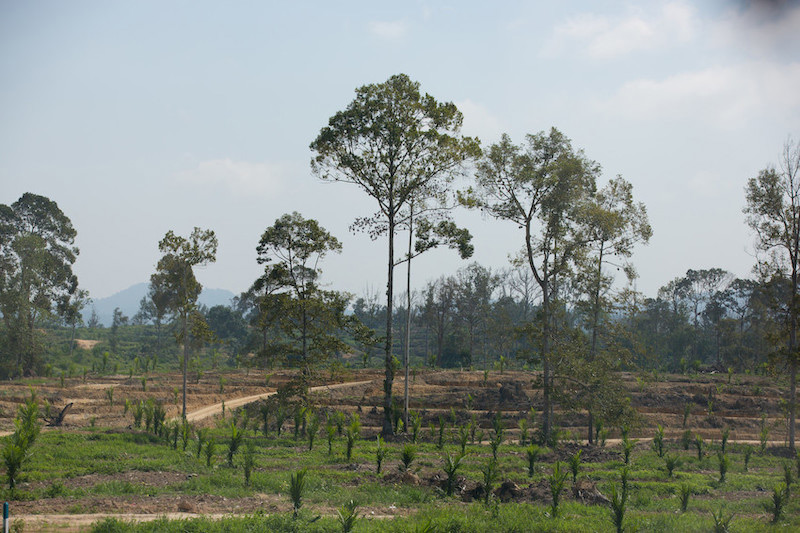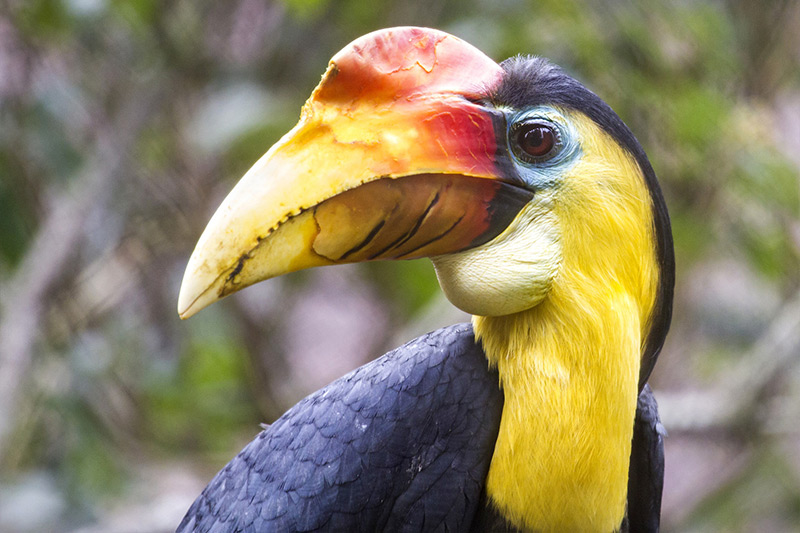
HUTAN
CONSERVATION IN MALAYSIAN BORNEO
Bridging Forest Fragments for Wildlife
DISAPPEARING FORESTS
Located on the east coast of the Malaysian state of Sabah in Borneo, the Kinabatangan floodplain is home to endangered species such as Asian elephants, Bornean orangutans and wrinkled hornbills. Yet the forests they depend on are disappearing as the worldwide demand for palm oil—used in many foods and household products—has led to a landscape dominated by agricultural plantations. Today there are only 200,000 acres of isolated and disconnected forest left. Agricultural areas are often raided by elephants and orangutans, cut off from natural habitat, causing conflict with humans who defend themselves by building fences or digging trenches, further fragmenting the habitat and endangering species.
PARTNER SPOTLIGHT
HUTAN Kinabatangan Orangutan Conservation Program
A Woodland Park Zoo Conservation Partner
Woodland Park Zoo partners with HUTAN to restore critical habitat corridors for all these endangered species and to help meet the needs of people who live in the region.
HUTAN Brings Good News for Wildlife and People

Reducing Human-Wildlife Conflict
Eight full-time women employees have planted and are caring for more than 100,000 seedlings in order to create wildlife corridors between the lowland and highland forests of the State of Sabah. With clear passageways, elephants and orangutans now have fewer unsafe encounters and conflicts with people.

Creating a Treetop Highway
HUTAN has pioneered orangutan bridges to alleviate habitat fragmentation from logging. All bridges are now regularly used by orangutans during forest dispersal.

Bringing Back Hornbills
Due to deforestation, large trees with natural nest cavities have all but disappeared for Borneo’s eight hornbill species. A zoo-driven project has led to the first documented instance of Rhinoceros hornbills using an artificial nest box to raise a chick.
Download the app
Do a little more each day
Changing habits takes practice. Start the switch to sustainable palm oil by using the candy guide to satisfy your sweet tooth. Then download the PalmOil Scan mobile app to easily scan barcodes while you shop and expand your wildlife-friendly habits to your lunchbox, your kitchen pantry, your bathroom cabinets and beyond.
Created by World Association of Zoos and Aquariums with Cheyenne Mountain Zoo
ABOUT THE WILDLIFE
Bornean elephants
Bornean elephants are endemic to the island and current studies estimate only about 2,000 of them remain in highly fragmented populations. Much of the human-wildlife conflict in the region is related to crop damage from elephants who are cut off from natural food supplies, forcing them to raid crops to meet their high-energy food requirements.
Orangutans
There are three species of orangutans native to the rain forests of Borneo and Sumatra. All of them are critically endangered and all face similar threats related to poaching, habitat destruction and the illegal pet trade. Orangutans spend most of their lives in trees and depend on canopy connectivity between habitats to find food and mates.
Hornbills
There are eight species of hornbills found in Borneo. Hornbills belong to a family of birds known for their large bills, which look similar to those of a toucan although they are not related. Hornbills are cavity-nesting birds, meaning they need large hollow trees found in older forests to reproduce and raise families. Most Asian hornbills are endangered due to loss of primary forest habitats.




